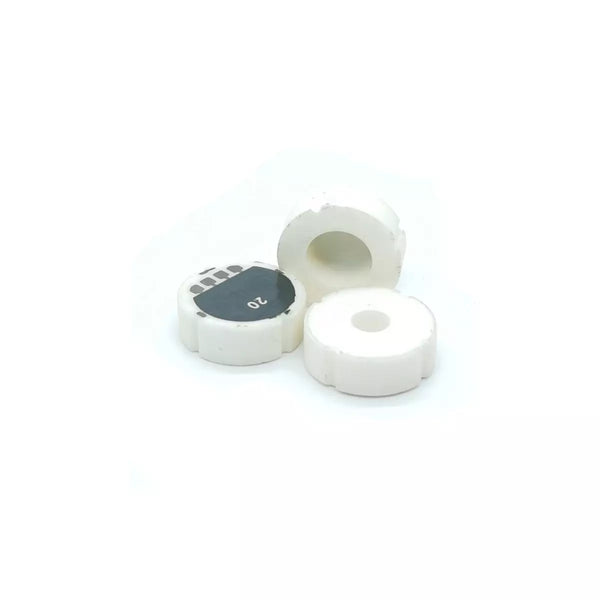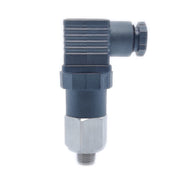Introduction
Step into the captivating universe of capacitive pressure sensors with our comprehensive guide! Prepare to embark on a journey where we unravel the mysteries surrounding these sophisticated sensors. From understanding their fundamental workings to exploring their diverse applications and the numerous advantages they bring, this guide has it all. Whether you're a beginner eager to grasp the basics or someone finding advanced insights, we're here to navigate the nuances of "what is a capacitive pressure sensor?". Get ready for an adventure into the fascinating world of technology!
The basics of capacitive pressure sensor
Dive into the realm of technology as we explore the fascinating world of capacitive pressure sensors! These innovative sensors are designed to measure pressure by cleverly using changes in capacitance. The magic happens when pressure alters the sensor's capacitance, transforming it into electrical signals that can be understood by machines. Picture this: it's like the sensor's way of talking to the devices around it! You can find these sensors in all sorts of cool places, from factories and cars to medical gadgets, because they're super good at accurately sensing and responding to changes in pressure. So, whenever you think about things like how your car knows when to stop or how machines work in factories, remember that capacitive pressure sensors are likely playing a crucial role behind the scenes!
How does a capacitive pressure sensor work?
Capacitive pressure sensors work based on the principle of capacitance, a property of electrical systems.
Fundamentals of Capacitance: The capacity of a system to hold electrical charge is known as its capacitor. A dielectric substance separates the two conducting plates in capacitive sensors for pressure.
Pressure-Induced Changes: When pressure is applied to the sensor, the distance between the plates changes. Consequently, a system's resistance is changed.
Capacitance Measurement: The sensor measures this change in capacitance. The amount of change is directly related to the applied pressure.
Conversion to Electrical Signals: The sensor converts the measured capacitance change into electrical signals. These signals can be interpreted by electronic devices and used for various applications.
Output: In line with the specifications of the linked systems and the layout of the sensor, the final result may take the shape of a voltage, current, or electronic signal.
Applications: Capacitive pressure sensors find applications in diverse fields, including industrial processes, automotive systems (such as tire pressure monitoring), medical devices, and consumer electronics.

what are the uses of a capacitive pressure sensor?
Capacitive pressure sensors are like superheroes with jobs in many cool places! They help in making sure things work just right. Here's where you can find them:
Big Factories:Making sure big machines in factories run smoothly by keeping an eye on pressure.
Cars and Trucks:Helping cars stay safe and use less gas by checking the pressure in the tires.
Hospitals and Doctors' Offices:Working in medical gadgets that check your blood pressure and help you breathe better.
Smartphones and Tablets:Making your touchscreens smart and sensitive to your fingers' touch.
Weather Stations:Checking the air pressure in weather stations to help predict the weather.
Airplanes and Spacecraft:Keeping track of the air pressure inside airplanes and even in outer space!
Your Home Appliances:Helping your coffee maker and dishwasher work just right by watching the pressure.
Where to get the best one
The best way to to find out capacitive pressure sensor to visit the website of TTNergy. Why the TTNergy is the best website about this because this website got the best sensors for you and you can get them by explore us. In this website you can also learn many facts about sensors. So visit us quickly.
FAQs
Are capacitative pressure sensors sensitive to weather and stuff?
Yep, these sensors can be affected by the weather and things around them, but don't worry; smart tech helps them deal with it better!
Can capacitative pressure sensors handle crazy hot or cold places?
Absolutely! These sensors are like superheroes that work in really hot or super-cold places, like in space or in big factories.
Do capacitative pressure sensors need a check-up?
not every time but sometimes when needed. These sensors usually stay okay, but sometimes they need a little tweak to keep working perfectly.
How Long Do Capacitive Pressure Sensors Stay Super?
With good care, they can stay superhero-strong for more than ten years! That's a really long time in tech years.
What's the Difference Between Capacitive Pressure Sensors and Other Sensors?
Some sensors make electricity when you press on them, but capacitive ones change something called "electrical capacitance." It's like speaking a different tech language!
Do Capacitive Pressure Sensors Get Bothered by Other Gadgets?
They might get a little annoyed by other gadgets, but tech experts put on their superhero capes and make sure they stay focused on their jobs.
In the conclusion
after all this talking about "what is a capacitive pressure sensor?", we've learned they're like tech superheroes. They're super smart, last a really long time, and help make our tech-filled world work even better!



Leave a comment